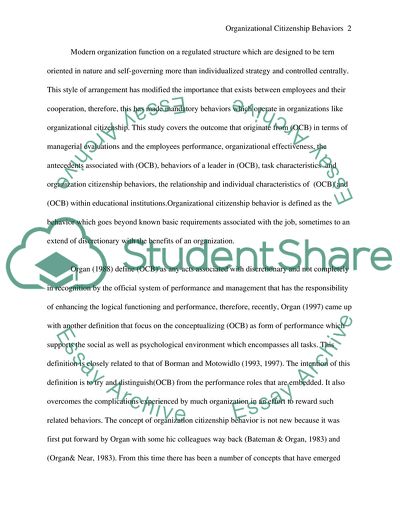Cite this document
(Individuals - and organizational - level consequences of Assignment - 1, n.d.)
Individuals - and organizational - level consequences of Assignment - 1. https://studentshare.org/human-resources/1853321-individuals-and-organizational-level-consequences-of-organizational-citizenship-behaviors-a-meta-analysis
Individuals - and organizational - level consequences of Assignment - 1. https://studentshare.org/human-resources/1853321-individuals-and-organizational-level-consequences-of-organizational-citizenship-behaviors-a-meta-analysis
(Individuals - and Organizational - Level Consequences of Assignment - 1)
Individuals - and Organizational - Level Consequences of Assignment - 1. https://studentshare.org/human-resources/1853321-individuals-and-organizational-level-consequences-of-organizational-citizenship-behaviors-a-meta-analysis.
Individuals - and Organizational - Level Consequences of Assignment - 1. https://studentshare.org/human-resources/1853321-individuals-and-organizational-level-consequences-of-organizational-citizenship-behaviors-a-meta-analysis.
“Individuals - and Organizational - Level Consequences of Assignment - 1”. https://studentshare.org/human-resources/1853321-individuals-and-organizational-level-consequences-of-organizational-citizenship-behaviors-a-meta-analysis.


